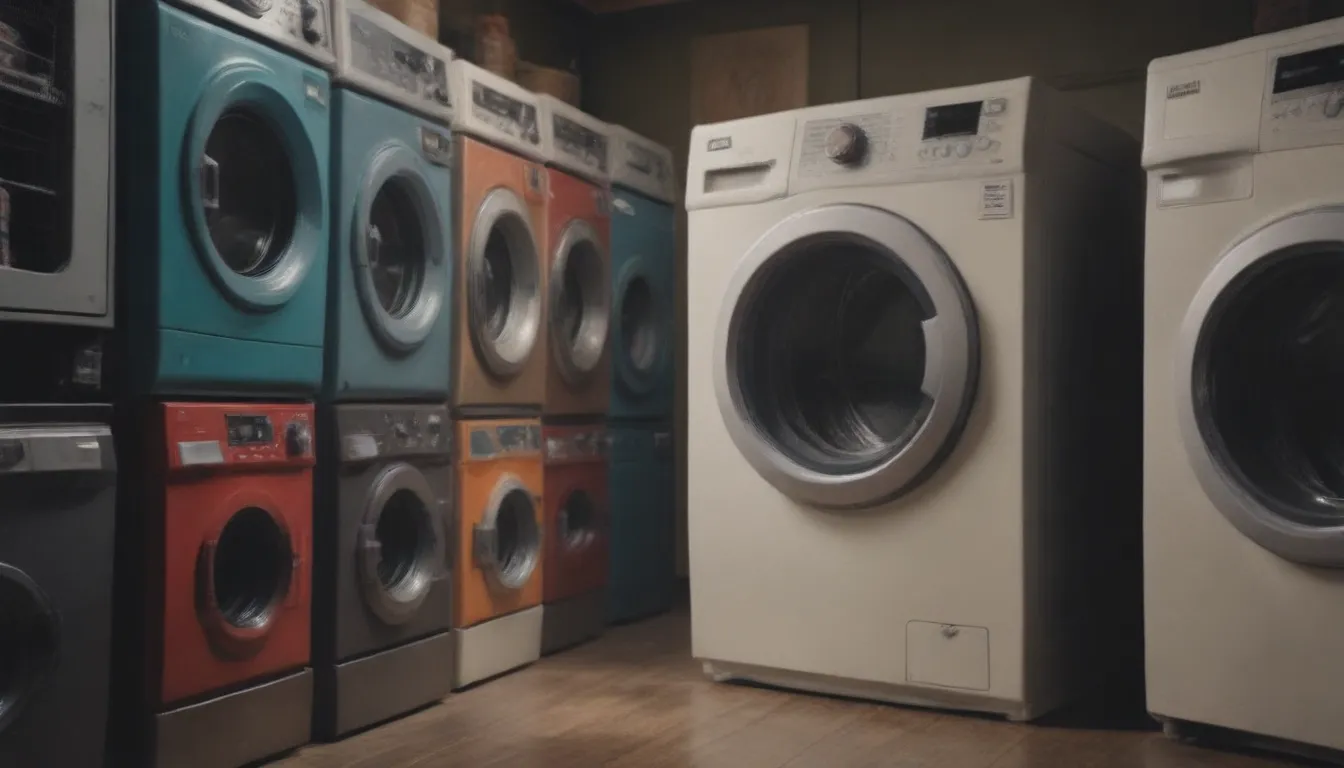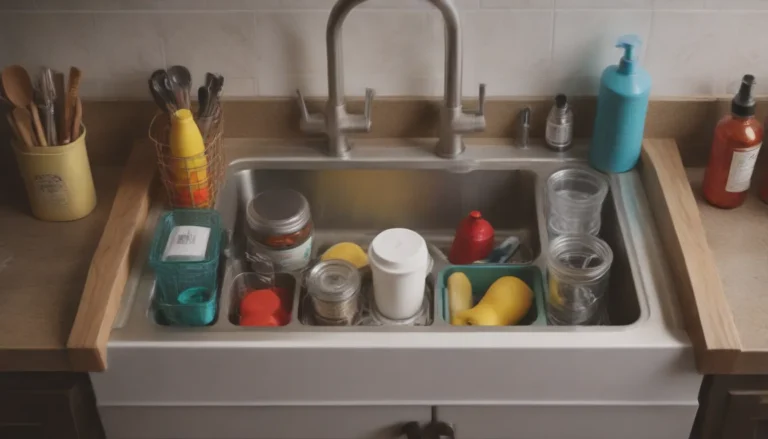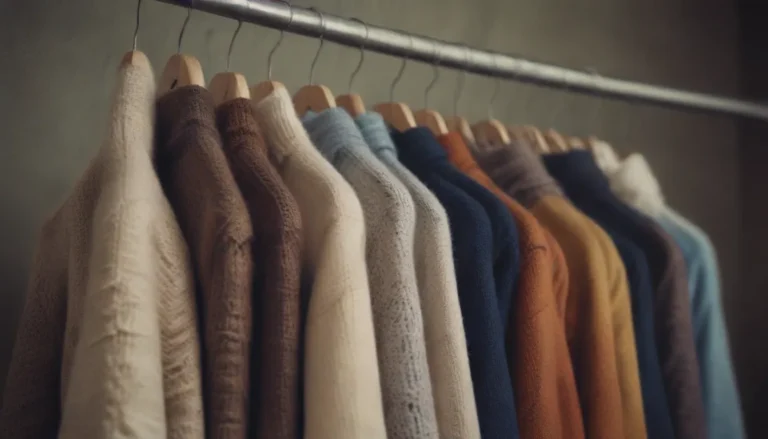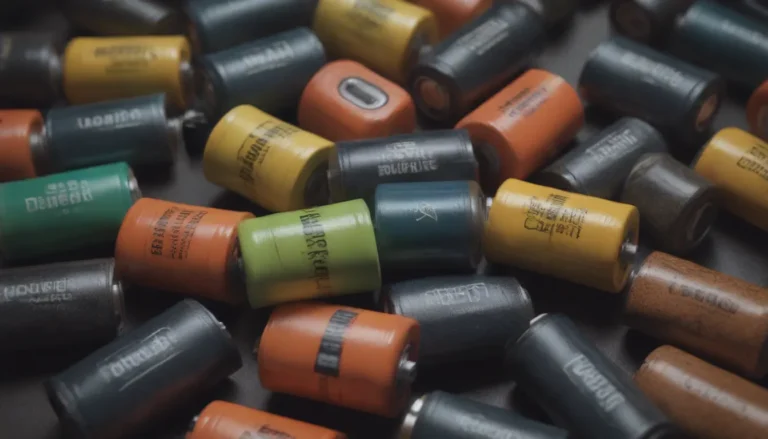Everything You Need to Know About High-Efficiency (HE) Washers

Are you considering purchasing a new washer and wondering what all the buzz is about high-efficiency (HE) washers? Well, you’ve come to the right place! In this comprehensive guide, we will explore everything you need to know about HE washers, from what sets them apart from traditional washers to the key features, repair and maintenance tips, and much more. So, grab a cup of coffee and let’s dive in!
What Makes an HE Washer Different?
So, what exactly makes a washer high-efficiency? HE washers must meet specific criteria regarding water, energy, and detergent usage to be classified as such. Here are some key differences between HE washers and traditional washers:
- HE washers use less water, energy, and detergent compared to traditional washers.
- They typically have larger load capacities since they do not have a traditional agitator.
- HE washers feature a gentle tumbling action to clean clothes effectively, rather than relying on agitation.
When shopping for an HE washer, look for the HE symbol displayed prominently on the appliance and the absence of an agitator. These are telltale signs that you are purchasing a high-efficiency machine.
Major Differences Between HE and Traditional Washers
HE washers and traditional washers have distinct characteristics that set them apart. Let’s explore some of the major differences between the two types of machines:
Key Features of High-Efficiency Washers
- HE washers use a gentle rotating tumbling action to clean clothes effectively.
- They have a redesigned agitator (in top-loading models) that draws the load down into low water and detergent for optimal cleaning performance.
- HE washers come in both front-loading and top-loading models, offering flexibility in design and functionality.
Key Features of Traditional Washers
- Traditional washers typically have a tall agitator in the middle of the tub, which can limit the washing capacity.
- They rely on agitation to clean clothes, which can be rougher on fabrics compared to the tumbling action of HE washers.
Appearance and Size
When it comes to appearance and size, HE washers offer more options for consumers compared to traditional washers. Here’s what you need to know:
- HE washers come in both front-loading and top-loading models, giving you the flexibility to choose the style that best fits your space and needs.
- Traditional washers are typically top-loading only, limiting the variety of design options available.
In terms of size, both HE and traditional washers come in various capacities to accommodate different laundry needs. Keep in mind that some HE top-loaders may be slightly taller and wider than standard top-loaders, which may require reaching into deeper tubs.
Repair and Maintenance Tips
Proper maintenance is essential to keep your washer running smoothly and efficiently. Here are some tips for maintaining both HE and traditional washers:
High-Efficiency Washer Maintenance
- Due to low water usage, HE washers may require more frequent cleaning to prevent mold and mildew buildup.
- Leave the door and dispenser drawer of your HE washer open to allow for proper drying.
- Run the machine-cleaning cycle as recommended by the manufacturer to reduce the risk of bacterial growth.
Traditional Washer Maintenance
- Watch for overloading your top-loading standard washer, as this can cause issues with spinning and agitation.
- Keep an eye on the agitator in traditional washers and address any malfunctions promptly.
When it comes to repair and maintenance, traditional washers generally have a lower learning curve compared to HE washers, which may require more attention to detail and daily care.
Wear and Tear on Clothing
If you’re concerned about preserving the longevity of your clothing, the type of washer you choose can make a difference. Here’s how HE washers and traditional washers compare in terms of wear and tear:
- HE washers use a gentle tumbling action that is more forgiving on fabrics, reducing wear and tear on clothing.
- Traditional washers rely on agitation, which can be rougher on delicate fabrics and may cause more wear over time.
By opting for an HE washer, you can extend the life of your clothing and reduce the risk of damage from harsh agitation.
Water and Energy Efficiency
In today’s world, conservation is key, and choosing an HE washer can help you reduce your environmental footprint. Here’s how HE and traditional washers compare in terms of water and energy use:
- HE washers use less water per load, leading to reduced energy consumption and water usage.
- HE washers are Energy Star compliant, meeting stringent guidelines for energy efficiency.
- Traditional washers, on the other hand, may be less energy-efficient due to their reliance on a central agitator.
When it comes to water and energy efficiency, HE washers are the clear winner, offering savings on both utility bills and environmental impact.
Installation and Cost
Installing a new washer is a straightforward process, whether you choose an HE or traditional model. Here’s what you can expect in terms of installation and cost:
- Both HE and traditional washers require similar installation steps, including making water and drain connections, leveling the appliance, and plugging it in.
- While HE washers may cost more upfront than traditional washers, the range of sizes and capacities available has increased, offering more options for consumers.
When it comes to cost, traditional washers may be initially cheaper to purchase, but the long-term savings on water and energy with an HE washer can make up for the higher upfront cost.
Lifespan and Conclusion
Regardless of whether you choose an HE or traditional washer, you can expect your appliance to last for over 10 years with proper care and maintenance. By following best practices and using the correct detergent, you can maximize the lifespan of your washer and keep it running smoothly for years to come.
In conclusion, when deciding between an HE washer and a traditional washer, consider your laundry needs, budget, and environmental impact. HE washers offer numerous benefits, including water and energy efficiency, gentle cleaning action, and advanced features. While they may require more maintenance and a higher upfront cost, the long-term savings and environmental benefits make them a worthwhile investment.
So, next time you’re in the market for a new washer, consider the benefits of an HE washer and make an informed decision that aligns with your values and lifestyle. Happy washing! 🌟
Laundry Best Practices, Energy Star, United States Department of Energy.





